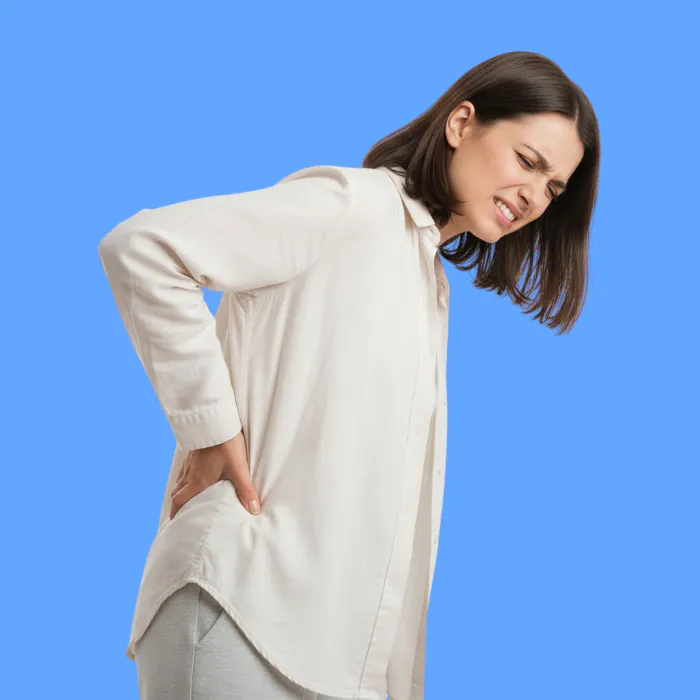what is hemorrhoids?
Hemorrhoids are a common condition that affects the anal and lower rectal area, caused by swelling or dilation of blood vessels in that region.
People with hemorrhoids often feel discomfort while sitting or during bowel movements, sometimes accompanied by mild bleeding or annoying itching In some cases, hemorrhoids are internal and not visible, while in others they are external and appear around the anal opening.
what are the causes of hemorrhoids?
The causes of hemorrhoids vary and are often linked to lifestyle factors or pressure on the anal area, including:
- Sitting for long periods without movement.
- Chronic constipation or frequent diarrhea.
- Pregnancy and childbirth due to fetal pressure on blood vessels.
- Frequently lifting heavy objects.
- Obesity and excess weight.
- Low fiber intake in the diet.
- Aging and weakened blood vessel walls.
- Straining during bowel movements.
what are the common symptoms of hemorrhoids?

Hemorrhoid symptoms develop gradually and vary in severity from person to person, including:
- Pain or discomfort while sitting or during bowel movements.
- Mild bleeding after bowel movements, visible on toilet paper.
- Itching or irritation in the anal area.
- Swelling or a small lump around the anal opening.
- Feeling of incomplete bowel evacuation.
- Occasional mucus discharge.
- Sensation of a foreign body in the anal area.
when should you see a doctor?
In some cases, hemorrhoids are mild and improve with self-care, but certain signs require medical attention, including:
- Persistent bleeding for more than a few days.
- Severe pain that doesn't improve with home remedies.
- Large swelling or painful lump.
- Difficulty in bowel movements or feeling of blockage.
- Change in stool color or presence of heavy blood.
- Unexplained weight loss.
- Appearance of unusual symptoms.
what are the treatment options for hemorrhoids?
Treatment varies depending on the type and severity of hemorrhoids, ranging from home remedies to medical procedures, including:
- Using topical creams or ointments to relieve pain.
- Sitting in warm water (sitz bath) several times a day.
- Eating fiber-rich foods to ease bowel movements.
- Drinking adequate amounts of water daily.
- Using laxatives when needed to avoid constipation.
- Avoiding prolonged sitting.
- Minor surgical procedures in advanced cases.
- Laser treatment or rubber band ligation for internal hemorrhoids.
can hemorrhoids be cured?
Yes, hemorrhoids can be completely cured in many cases, especially if treated early and lifestyle changes are made.
Recovery depends on the severity of the condition, the body's response to treatment, and the patient's commitment to preventive advice.
what are the prevention tips for hemorrhoids?
Preventing hemorrhoids involves improving lifestyle habits and avoiding triggering factors, including:
- Eating daily fiber from vegetables and fruits.
- Drinking sufficient water.
- Exercising regularly.
- Avoiding prolonged sitting without movement.
- Not straining during bowel movements.
- Using the toilet as soon as the urge arises.
- Maintaining a healthy weight.
- Avoiding heavy lifting whenever possible.
what are the possible complications of hemorrhoids?
If hemorrhoids are left untreated, complications may arise that affect quality of life, including:
- Chronic bleeding leading to anemia.
- Inflammation or infection in the anal area.
- Blood clot formation in external hemorrhoids.
- Prolapse of internal hemorrhoids outside the anal opening.
- Severe pain that prevents sitting or movement.
- Difficulty in bowel movements or partial blockage.
frequently asked questions about hemorrhoids
Do hemorrhoids go away on their own?
In some mild cases, yes.
Can hemorrhoids be treated without surgery?
Yes, most cases respond to home treatment.
Do hemorrhoids cause cancer?
No, but they may resemble symptoms of other diseases.
Does pregnancy cause hemorrhoids?
Yes, due to fetal pressure on blood vessels.
article summary
Hemorrhoids are a common condition that can be managed easily if detected early Prevention starts with lifestyle adjustments and avoiding triggers like constipation and prolonged sitting.
If bothersome or persistent symptoms appear, it's recommended to consult a doctor to determine the right treatment and avoid complications.